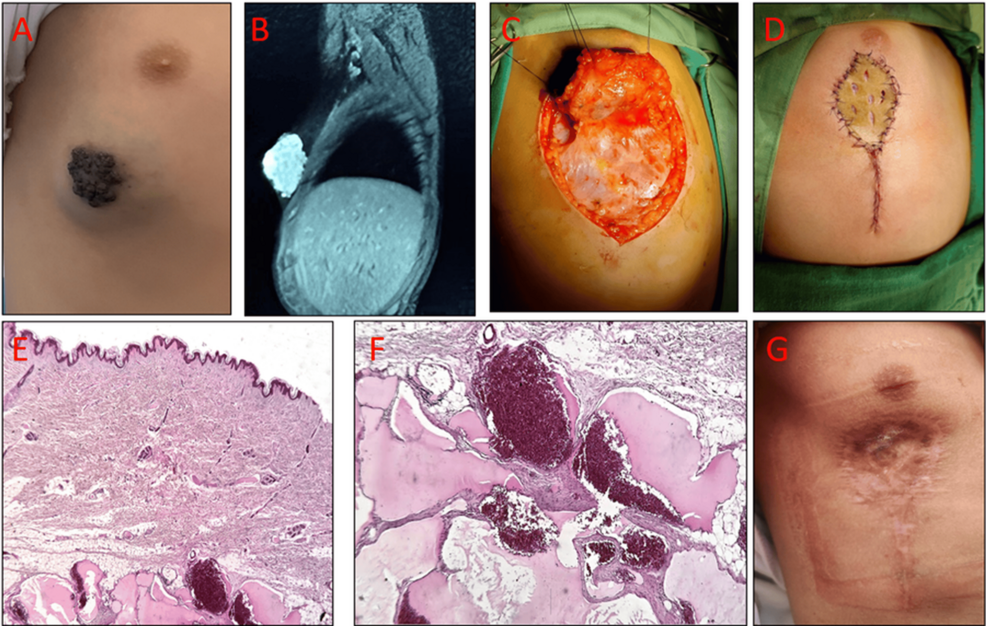RARITAN, NEW JERSEY, October 15, 2025 – Johnson & Johnson today announced plans to showcase 16 presentations at the
European Society for Medical Oncology (ESMO) 2025 Congress, spotlighting advances across its industry-leading solid tumor pipeline—including head and neck, lung, bladder, and prostate cancers. These data showcase accelerating momentum and the Company’s commitment to transforming care in some of the most challenging and underserved cancers.
“We’ve entered a new era for Johnson & Johnson in oncology, delivering the latest bold advances in solid tumors,” said Yusri Elsayed, M.D., M.H.Sc., Ph.D., Global Therapeutic Area Head, Oncology, Johnson & Johnson Innovative Medicine. “We’re advancing the next generation of treatments and resetting expectations across bladder, prostate, colorectal, head and neck and EGFR-mutated lung cancer.”
“These results highlight the promise of our innovation, from novel mechanisms that harness the immune system to organ-preserving approaches that could change standards of care,” said Henar Hevia, Ph.D., Senior Director, EMEA Therapy Area Head, Oncology, Johnson & Johnson Innovative Medicine. “Our ambition is to translate our deep expertise in hematology into tangible progress in solid tumors, delivering therapies that not only extend survival but also preserve quality of life for patients and families.”
Highlights include studies across four different solid tumor types:
- Head & Neck Cancer: First results from the Phase 1b/2 OrigAMI-4 study of subcutaneous (SC) amivantamab in recurrent/metastatic head and neck cancer, evaluating patients whose disease progressed after immunotherapy and chemotherapy (Oral Abstract #1327MO)
- Non-Small Cell Lung Cancer:
- Results from the Phase 2 PALOMA-2 study (Cohort 3b) evaluating SC amivantamab plus chemotherapy in patients with EGFR-mutant advanced non-small cell lung cancer (NSCLC) after progression on osimertinib (Poster #1960P)
- An update on the Phase 2 COPERNICUS study evaluating once monthly dosing of SC amivantamab in patients with common EGFR-mutated NSCLC (Online Publication)
- Prostate Cancer: New translational research analysis from the Phase 1 first-in-human study of pasritamig (JNJ-78278343), a first-in-class bispecific T-cell-engaging antibody targeting human kallikrein 2 (KLK2) in patients with metastatic castration-resistant prostate cancer (Oral Abstract #2385MO)
- Pasritamig was recently granted Fast Track designation by the U.S. Food and Drug Administration.
- Bladder Cancer: Late-breaking primary results from the Phase 2 SunRISe-4 study of neoadjuvant gemcitabine intravesical system plus cetrelimab or cetrelimab alone in patients with muscle-invasive bladder cancer who are ineligible for or refuse pre-surgery platinum-based chemotherapy and are scheduled for radical cystectomy (Oral Abstract #LBA112)
All Johnson & Johnson company-sponsored abstracts to be presented are listed below:
| Head & Neck Cancer |
| Subcutaneous Amivantamab |
| Oral Presentation |
|
October 19, 2025
4:30 – 6:00 PM CEST
Abstract #1327MO
|
Amivantamab in Recurrent/Metastatic Head & Neck Squamous Cell Cancer (HNSCC) After Disease Progression on Checkpoint Inhibition and Chemotherapy: Results From the Phase 1b/2 OrigAMI-4 Study |
| Poster Presentation |
|
October 20, 2025
12 – 12:45 PM CEST
Abstract #1352P
|
Amivantamab Plus Paclitaxel in Recurrent/Metastatic (R/M) Head & Neck Squamous Cell Cancer (HNSCC) After Disease Progression on Checkpoint Inhibition: Identification of the Recommended Combination Dose From the Phase 1b/2 OrigAMI-4 Study |
| Lung Cancer |
| Subcutaneous Amivantamab |
| Poster/eTiP Presentations |
|
October 18, 2025
12 – 12:45 PM CEST
Abstract #1960P
|
Subcutaneous (SC) Amivantamab (Ami) Plus Chemotherapy (Chemo) in EGFR-Mutant (EGFRm) Advanced Non-Small Cell Lung Cancer (NSCLC) After Disease Progression on Osimertinib (Osi) |
| Abstract #2082eTIP |
COPERNICUS: A Multinational Pragmatic Phase 2 Trial of Subcutaneous (SC) Amivantamab (Ami) in Common EGFR-Mutated (cEGFRm) NSCLC |
| Poster Presentation |
|
October 18, 2025
12 – 12:45 PM CEST
Abstract #1826P
|
Real-World Utilization and Outcomes With PACIFIC Regimen in Stage III Unresectable Non-Small Cell Lung Cancer Patients: Results From a Multicenter US Database |
| Bladder Cancer |
| Gemcitabine Intravesical System |
| Oral Presentation |
|
October 17, 2025
4 – 5:30 PM CEST
Abstract #LBA112
|
Neoadjuvant Gemcitabine Intravesical System + Cetrelimab (CET) or CET Alone in Patients (Pts) With Muscle-Invasive Bladder Cancer (MIBC): SunRISe-4 (SR-4) Primary Analysis and Biomarker Results |
| Poster Presentations |
|
October 18, 2025
12 – 12:45 PM CEST
Abstract #3088P
|
Association of Molecular Markers With Clinical Response to Gemcitabine Intravesical System in the Phase 2b SunRISe-1 Trial in Patients With BCG-Unresponsive Non-Muscle Invasive Bladder Cancer (NMIBC) With Carcinoma in Situ (CIS), With or Without Papillary Disease |
|
October 18, 2025
12 – 12:45 PM CEST
Abstract #3119eP
|
Real-World Use of Bacillus Calmette-Guérin (BCG) in Patients With High-Risk Non-Muscle Invasive Bladder Cancer (HR-NMIBC) |
| TAR-210 |
| Poster Presentation |
|
October 20, 2025
12 – 12:45 PM CEST
Abstract #1766eP
|
Deep Learning-Based Digital Pathology Algorithm Overcomes Tumor Content Limitations for FGFR Alteration Detection in Non-Muscle Invasive Bladder Cancer |
| Erdafitinib |
| Poster Presentation |
|
October 18, 2025
12 – 12:45 PM CEST
Abstract #3092P
|
Impact of Dose Reductions on the Efficacy of Erdafitinib (Erda) in Patients (Pts) with Advanced or Metastatic Urothelial Carcinoma (mUC): A Post-hoc Analysis of the Phase 3 THOR Study Cohort-1 Evaluating Erda versus Chemotherapy (Chemo) |
| Prostate Cancer |
| Pasritamig |
| Oral Presentation |
|
October 17, 2025
2 – 3:30 PM CEST
Abstract #2385MO
|
Translational Analyses of T-Cell Phenotypes and Their Association With Clinical Efficacy in the First-In-Human (FIH) Trial of JNJ-78278343 (Pasritamig) in Metastatic Castration-Resistant Prostate Cancer (mCRPC) |
| Apalutamide |
| Poster Presentations |
|
October 18, 2025
12 – 12:45 PM CEST
Abstract #2455P
|
Prevalence and Severity of Hot Flashes and Their Association With Prostate-Specific Antigen (PSA) Response: Results From the Initial Treatment (Tx) Phase of LIBERTAS, a Phase 3 Study in Metastatic Hormone-Sensitive Prostate Cancer (mHSPC) |
|
October 18, 2025
12 – 12:45 PM CEST
Abstract #2499P
|
Overview of Therapeutic Management and Disease Progression in Patients
With Localized Prostate Cancer Based on the French National Health Data System (SNDS) |
| Niraparib and Abiraterone Acetate |
| Oral Presentation |
|
October 17, 2025
2 – 3:30 PM CEST
Abstract #LBA91
|
Patient (Pt) Reported Outcomes (PROs) From AMPLITUDE, a Randomized Placebo-Controlled Phase 3 Trial of Niraparib (NIRA) and Abiraterone Acetate (AA) Plus Prednisone (P) in Metastatic Hormone-Sensitive Prostate Cancer (mHSPC) With Homologous Recombination Repair Mutations (HRRm) |
| Poster Presentations |
|
October 18, 2025
12 – 12:45 PM CEST
Abstract #2438P
|
Association of Somatic/Germline Homologous Recombination Repair (HRR) Alterations With Prostate-Specific Antigen (PSA-PFS), Radiographic (rPFS) and Second (PFS2) Progression-free Survival in Metastatic Hormone-Sensitive Prostate Cancer (mHSPC) by Disease Volume |
|
October 18, 2025
12 – 12:45 PM CEST
Abstract #2515P
|
Efficacy of Niraparib and Abiraterone Acetate Plus Prednisone in Metastatic Castration-Resistant Prostate Cancer (mCRPC) With Homologous Recombination Repair (HRR) Gene Alterations Identified by Tissue vs Plasma Assay in MAGNITUDE Study Final Analysis |
| Solid Tumor |
| Early Assets |
| Poster Presentation |
|
October 19, 2025
12 – 12:45 PM CEST
Abstract #1566P
|
Phase 1 Study of Intratumoral Administration of JNJ-87704916, an Oncolytic Virus, as Monotherapy and in Combination With Cetrelimab in Advanced Solid Tumors |
About Subcutaneous Amivantamab
Subcutaneous amivantamab is an investigational fixed-dose combination of the bispecific antibody amivantamab and recombinant human hyaluronidase PH20 (rHuPH20), which is part of Halozyme’s ENHANZE® drug delivery technology. It targets EGFR and MET with immune cell-directing activity and is being developed to address tumors driven by activating and resistance EGFR mutations as well as MET alterations.
Subcutaneous amivantamab is being studied across multiple tumor types, including head and neck squamous cell carcinoma (HNSCC) and non-small cell lung cancer (NSCLC).
The legal manufacturer for subcutaneous amivantamab is Janssen Biotech, Inc.
About Gemcitabine Intravesical System
Gemcitabine intravesical system is an investigational intravesical system enabling extended release of gemcitabine into the bladder. The safety and efficacy of gemcitabine intravesical system are being evaluated in Phase 2 and Phase 3 studies in patients with non-muscle invasive bladder cancer (NMIBC) in
SunRISe-1,
SunRISe-3 and
SunRISe-5 and muscle-invasive bladder cancer (MIBC) in
SunRISe-4. SunRISe-4 is a non-registrational trial for gemcitabine intravesical system.
The legal manufacturer for gemcitabine intravesical system is Janssen Biotech, Inc.
About Niraparib and Abiraterone Acetate
Niraparib and abiraterone acetate is a combination, in the form of a dual-action tablet (DAT), of niraparib, a highly selective poly (ADP-ribose) polymerase (PARP) inhibitor, and abiraterone acetate, a CYP17 inhibitor. Niraparib and abiraterone acetate together with prednisone or prednisolone was approved in
April 2023 by the European Medicines Agency, and in
August 2023 by the U.S. FDA, for the treatment of patients with BRCA-mutated metastatic castration-resistant prostate cancer (mCRPC). Patients are selected for therapy based on an FDA-approved test for genetic alterations. Additional marketing authorization applications are under review across a number of countries globally.
Additional ongoing studies include the Phase 3 AMPLITUDE study evaluating niraparib and abiraterone acetate with prednisone or prednisolone in a biomarker-selected patient population with metastatic castration-sensitive prostate cancer (mCSPC).
In April 2016, Janssen Biotech, Inc. entered a worldwide (except Japan) collaboration and license agreement with TESARO, Inc. (acquired by GlaxoSmithKline [GSK] in 2019) for exclusive rights to niraparib in prostate cancer.
About Erdafitinib
Erdafitinib is a once-daily, oral FGFR kinase inhibitor indicated for the treatment of adult patients with locally advanced or mUC with susceptible fibroblast growth factor receptor 3 (FGFR3) genetic alterations whose disease has progressed on or after at least one line of prior systemic therapy. Erdafitinib is not recommended for the treatment of patients who are eligible for and have not received prior PD-1 or PD-(L)1 inhibitor therapy. Patients are selected for therapy based on an FDA-approved companion diagnostic for erdafitinib. Information on FDA-approved tests for the detection of FGFR genetic alterations in urothelial cancer is available at:
http://www.fda.gov/CompanionDiagnostics.
Erdafitinib received Breakthrough Therapy Designation from the U.S. FDA in 2018 and received
accelerated approval in 2019 for the treatment of adults with locally advanced or mUC that has susceptible FGFR3 or fibroblast growth factor receptor 2 (FGFR2) genetic alterations and who have progressed during or following at least one line of prior platinum-containing chemotherapy, including within 12 months of neoadjuvant or adjuvant platinum-containing chemotherapy. In addition to the FDA approval, erdafitinib received
EC approval in August 2024.
In 2008, Janssen Pharmaceutica NV entered into an exclusive worldwide license and collaboration agreement with Astex Pharmaceuticals to develop and commercialize erdafitinib.
About Apalutamide
Apalutamide is an androgen receptor inhibitor indicated for the treatment of patients with non-metastatic castration-resistant prostate cancer (nmCRPC) and for the treatment of patients with metastatic castration-sensitive prostate cancer (mCSPC). Apalutamide
received U.S. Food and Administration (FDA) approval for nmCRPC in February 2018 and
received U.S. FDA approval for mCSPC in September 2019. To date, more than 200,000 patients worldwide have been treated with apalutamide. Additional studies are ongoing in the evaluation of apalutamide for the treatment of localized high-risk or locally advanced prostate cancer including the Phase 3 ATLAS 15 (
NCT02531516) and PROTEUS (
NCT03767244) studies.
The legal manufacturer for apalutamide is Janssen Biotech, Inc.
About Johnson & Johnson
At Johnson & Johnson, we believe health is everything. Our strength in healthcare innovation empowers us to build a world where complex diseases are prevented, treated, and cured, where treatments are smarter and less invasive, and solutions are personal. Through our expertise in Innovative Medicine and MedTech, we are uniquely positioned to innovate across the full spectrum of healthcare solutions today to deliver the breakthroughs of tomorrow, and profoundly impact health for humanity. Learn more at
https://www.jnj.com/ or at
www.innovativemedicine.jnj.com. Follow us at
@JNJInnovMed.
Cautions Concerning Forward-Looking Statements
This press release contains “forward-looking statements” as defined in the Private Securities Litigation Reform Act of 1995 regarding product development and the potential benefits and treatment impact of subcutaneous amivantamab, gemcitabine intravesical system, TAR-210, erdafitinib, apalutamide, cetrelimab, niraparib and abiraterone acetate and pasritamig. The reader is cautioned not to rely on these forward-looking statements. These statements are based on current expectations of future events. If underlying assumptions prove inaccurate or known or unknown risks or uncertainties materialize, actual results could vary materially from the expectations and projections of Johnson & Johnson. Risks and uncertainties include, but are not limited to: challenges and uncertainties inherent in product research and development, including the uncertainty of clinical success and of obtaining regulatory approvals; uncertainty of commercial success; manufacturing difficulties and delays; competition, including technological advances, new products and patents attained by competitors; challenges to patents; product efficacy or safety concerns resulting in product recalls or regulatory action; changes in behavior and spending patterns of purchasers of health care products and services; changes to applicable laws and regulations, including global health care reforms; and trends toward health care cost containment. A further list and descriptions of these risks, uncertainties and other factors can be found in Johnson & Johnson’s most recent Annual Report on Form 10-K, including in the sections captioned “Cautionary Note Regarding Forward-Looking Statements” and “Item 1A. Risk Factors,” and in Johnson & Johnson’s subsequent Quarterly Reports on Form 10-Q and other filings with the Securities and Exchange Commission. Copies of these filings are available online at www.sec.gov, www.jnj.com or on request from Johnson & Johnson. Johnson & Johnson does not undertake to update any forward-looking statement as a result of new information or future events or developments.
###
Source: Johnson & Johnson






